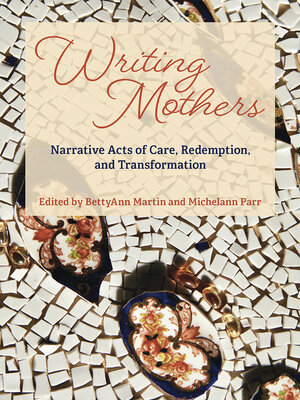
Sign up to save your library
With an OverDrive account, you can save your favorite libraries for at-a-glance information about availability. Find out more about OverDrive accounts.
Find this title in Libby, the library reading app by OverDrive.



Search for a digital library with this title
Title found at these libraries:
| Library Name | Distance |
|---|---|
| Loading... |
The story of motherhood is told through many voices and in many contexts. When honoured with the task of composing a collective story from our authors' experiences, we gestured toward the function and power of story to transform. The collection is organized in three movements that mirror the interdependent narrative acts of reflecting, re-imagining, and re-writing. By reflecting, we refer to conscious engagement with experience that makes meaningful connections between past, present, and potential futures, provides context for who we understand ourselves to be, and guides our awareness of the narratives shaping our lives. Only after we become conscious of tired narratives and ontological frameworks that no longer serve, can we be free to re-imagine our experiences: to re-create and reconstruct the very foundations of meaning on which the emplotment of our lives is based. Finally, by re-imagining, we create opportunities to re-write all dimensions of experience (temporal, personal, and cultural) in ways that reclaim and redeem the narrative composition of our lives. When these narrative acts are engaged, we write alternate realities and open futures into existence.
Each narrative act is illustrated in the collection by stories that most exemplify its function and power. Stories in the first movement, demonstrate authors' engagement with the process of reflecting through memory and over time to make sense of experience, in particular, the reality of change and trauma. In the second movement, the act of re-imagining is illustrated as writers challenge limited definitions of care and explore futures beyond convention. Finally, the third movement is dedicated to the act of re-writing in which our authors demonstrate how changes in perspective, and faith in possibility, can be written into our being in ways that transform both the meaning of experience and the evolution of self.







